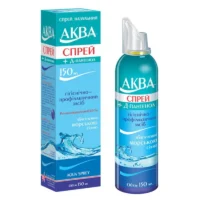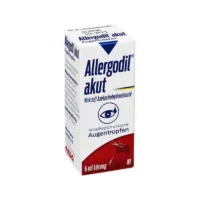Description
Rinofliu (Xylometazoline) Nasal Spray Solution 0.05% 10 ml Vial
Ingredients
- Active ingredient: Xylometazoline hydrochloride 0.05% w/v
- Other ingredients include benzalkonium chloride, sodium dihydrogen phosphate dihydrate, disodium phosphate dodecahydrate, and purified water
Dosage
Adults and children over 12 years: 1-2 sprays into each nostril every 8-10 hours as needed. Do not exceed 3 applications per day.
Indications
Rinofliu Nasal Spray is indicated for the relief of nasal congestion associated with hay fever, sinusitis, and other upper respiratory allergies.
Contraindications
Do not use Rinofliu Nasal Spray if you are allergic to xylometazoline or any other ingredients in the product. Consult a healthcare professional before use if you have heart disease, high blood pressure, thyroid problems, diabetes, or prostate issues.
Directions
- Blow your nose gently to clear the nasal passages before using the spray
- Remove the protective cap and prime the pump by pressing down several times until a fine mist is produced
- Insert the nozzle into one nostril while tilting your head slightly forward and spray as directed
- Repeat the process for the other nostril
Scientific Evidence
Xylometazoline, the active ingredient in Rinofliu Nasal Spray, is a selective alpha-1 adrenergic agonist that constricts blood vessels in the nasal mucosa, leading to decreased swelling and congestion. Studies have shown that xylometazoline provides rapid relief from nasal congestion with minimal systemic absorption, making it a safe and effective option for managing nasal symptoms.
Additional Information
Rinofliu Nasal Spray should not be used for more than 7 consecutive days to avoid rebound congestion. Prolonged use may lead to tolerance and decreased efficacy. If symptoms persist, consult a healthcare provider for further evaluation.
Pharmacological studies have demonstrated that xylometazoline acts locally on alpha-adrenergic receptors in the nasal mucosa, leading to vasoconstriction and reduced nasal blood flow. This action helps to alleviate nasal congestion and improve breathing. Clinical trials have shown that xylometazoline nasal spray is well-tolerated and provides fast relief from nasal congestion compared to placebo.
Compared to oral decongestants, xylometazoline nasal spray has a quicker onset of action and fewer systemic side effects due to its localized effect. Research published in the Journal of Allergy and Clinical Immunology has highlighted the efficacy of xylometazoline in improving nasal airflow and reducing nasal symptoms in patients with allergic rhinitis.





